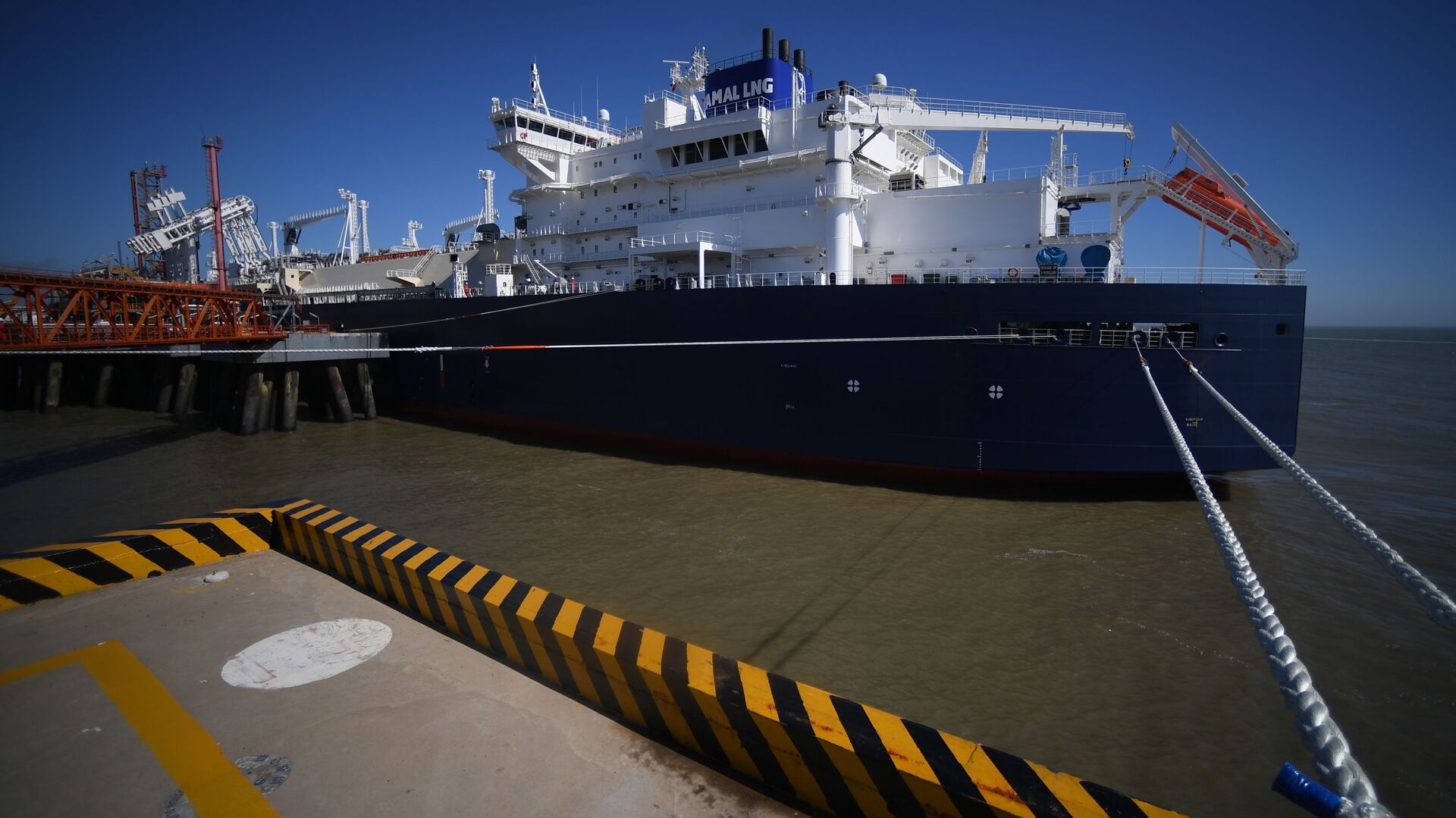https://sputnikglobe.com/20221121/as-eus-oil-embargo-nears-west-looks-to-crack-down-on-leakage-in-anti-russia-sanctions---report-1104516112.html
As EU’s Oil Embargo Nears, West Looks to Crack Down on ‘Leakage’ in Anti-Russia Sanctions - Report
As EU’s Oil Embargo Nears, West Looks to Crack Down on ‘Leakage’ in Anti-Russia Sanctions - Report
Sputnik International
As the European Union rushes to comply with Washington’s embargo of Russian energy exports, Washington is looking for other ways to tighten the screws on... 21.11.2022, Sputnik International
2022-11-21T21:53+0000
2022-11-21T21:53+0000
2022-11-22T06:06+0000
world
sanctions
crackdown
russia
petroleum
https://cdn1.img.sputnikglobe.com/img/107694/17/1076941788_0:171:3033:1877_1920x0_80_0_0_fcab4610fbde15ab7fa95a6486b715af.jpg
Despite extensive sanctions imposed on Russia by US-aligned nations following the launch of its special operation in Ukraine in February 2022, there have not been the precipitous drops in Russian energy exports for which they had hoped. Now, efforts are being made to tighten the noose.The European Union has struggled to follow Washington’s Russian energy boycott, since the bloc once bought nearly half its gas from Russia and many member states have seen sizable protests against further declines in purchases. By December 5, the EU plans to totally end its importation of Russian crude oil, followed by a total ban on all Russian energy products in January.However, the US quickly ended its consumption of Russian gas and petroleum in March, thanks to its smaller import volume, but that didn’t stop gas prices from skyrocketing in the US anyway. The Biden administration has spent the time since then pressuring other nations to abide by that boycott, including insisting that neutral nations like South Africa pick a side.US Treasury officials have also traveled far and wide, pushing the sanctions on a more personal level. Earlier this month, US Treasury Secretary Janet Yellen helped push the Group of 7 (G7) to adopt the long-discussed price cap on Russian petroleum, and last month, Yellen’s deputy, Elizabeth Rosenberg, flew to Japan to pressure the heads of leading Arab banks to crack down on alleged Russian money laundering in Middle Eastern countries.In addition, European nations are continuing to face social pressures associated with their support for Ukraine, including protests over the rising costs of living created by gas price hikes and inflation.New trade statistics revealed on Monday that the United Kingdom, no longer an EU member state but still a NATO ally, has imported nearly $1 billion in Russian petroleum since March.
russia
Sputnik International
feedback@sputniknews.com
+74956456601
MIA „Rossiya Segodnya“
2022
News
en_EN
Sputnik International
feedback@sputniknews.com
+74956456601
MIA „Rossiya Segodnya“
Sputnik International
feedback@sputniknews.com
+74956456601
MIA „Rossiya Segodnya“
sanctions, crackdown, russia, petroleum
sanctions, crackdown, russia, petroleum
As EU’s Oil Embargo Nears, West Looks to Crack Down on ‘Leakage’ in Anti-Russia Sanctions - Report
21:53 GMT 21.11.2022 (Updated: 06:06 GMT 22.11.2022) As the European Union rushes to comply with Washington’s embargo of Russian energy exports, Washington is looking for other ways to tighten the screws on Moscow, such as cracking down on enforcement of anti-Russian sanctions.
Despite extensive sanctions imposed on Russia by US-aligned nations following the launch of its special operation in Ukraine in February 2022, there have not been the precipitous drops in Russian energy exports for which they had hoped. Now, efforts are being made to tighten the noose.
“We want to avoid circumvention, both within Europe and then with third countries,” Mairead McGuinness, whose European Commission office oversees the bloc’s sanctions policy, told US media about anti-Russian sanctions. “The longer we have any leakage…the more difficult it is to see things coming to a conclusion.”
The European Union has struggled to follow Washington’s Russian energy boycott, since the bloc once bought nearly half its gas from Russia and many member states have
seen sizable protests against further declines in purchases. By December 5, the EU plans to totally end its importation of Russian crude oil, followed by a total ban on all Russian energy products in January.
Russia’s Gazprom halted liquified natural gas (LNG) from going through the Nord Stream 1 pipeline in early September, thanks to a unilateral price cap imposed on the product, and weeks later a mysterious undersea explosion rendered the pipeline inoperable.
However, the US quickly ended its consumption of Russian gas and petroleum in March, thanks to its smaller import volume, but that didn’t stop gas prices from skyrocketing in the US anyway. The Biden administration has spent the time since then pressuring other nations to abide by that boycott, including insisting that neutral nations like South Africa pick a side.
US Treasury officials have also traveled far and wide, pushing the sanctions on a more personal level. Earlier this month, US Treasury Secretary Janet
Yellen helped push the Group of 7 (G7) to adopt the long-discussed price cap on Russian petroleum, and last month, Yellen’s deputy, Elizabeth Rosenberg,
flew to Japan to pressure the heads of leading Arab banks to crack down on alleged Russian money laundering in Middle Eastern countries.
However, the more nations are pressured to sever trade relations with Russia, the more Washington risks alienating itself. US Secretary of State Antony Blinken was pointedly rejected by his South African counterpart after he flew to Pretoria to encourage South Africa to end its joint projects with Russia, and the pressures put on Arab states by the grain shortages created by Kiev and by the US’ demands to increase oil output are not bringing them any closer to Washington.
In addition, European nations are continuing to face social pressures associated with their support for Ukraine, including protests over the rising costs of living created by gas price hikes and inflation.
New trade statistics
revealed on Monday that the United Kingdom, no longer an EU member state but still a NATO ally, has imported nearly $1 billion in Russian petroleum since March.


